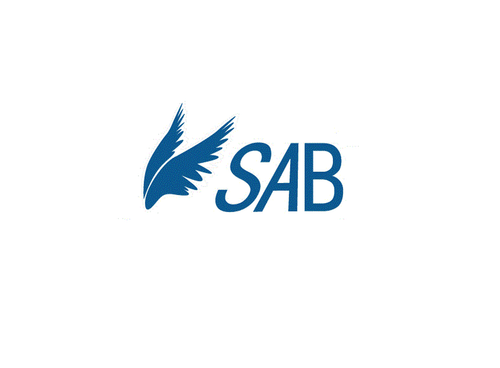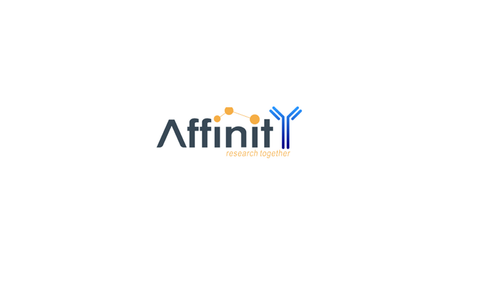Product Description
CKII alpha (CSNK2A1) Antibody (Center) [APR06075G] | Leading Biology
Product Category: Polyclonal Antibodies
Host: Rabbit
Species Reactivity: H, M, Rat
Specificity: This CKII alpha (CSNK2A1) antibody is generated from rabbits immunized with a KLH conjugated synthetic peptide between 240-269 amino acids from the Central region of human CKII alpha (CSNK2A1) .
Cellular Localisation: Nucleus
Molecular Weight: 45144
Clone: Polyclonal
Gene Name: CSNK2A1
Gene ID: 1457
Function: Catalytic subunit of a constitutively active serine/threonine-protein kinase complex that phosphorylates a large number of substrates containing acidic residues C-terminal to the phosphorylated serine or threonine (PubMed:11239457, PubMed:11704824, PubMed:16193064, PubMed:19188443, PubMed:20625391, PubMed:22406621, PubMed:24962073) . Regulates numerous cellular processes, such as cell cycle progression, apoptosis and transcription, as well as viral infection (PubMed:12631575, PubMed:19387552, PubMed:19387551) . May act as a regulatory node which integrates and coordinates numerous signals leading to an appropriate cellular response (PubMed:12631575, PubMed:19387552, PubMed:19387551) . During mitosis, functions as a component of the p53/TP53-dependent spindle assembly checkpoint (SAC) that maintains cyclin-B-CDK1 activity and G2 arrest in response to spindle damage (PubMed:11704824, PubMed:19188443) . Also required for p53/TP53-mediated apoptosis, phosphorylating 'Ser-392' of p53/TP53 following UV irradiation. Can also negatively regulate apoptosis (PubMed:11239457) . Phosphorylates the caspases CASP9 and CASP2 and the apoptotic regulator NOL3 (PubMed:16193064) . Phosphorylation protects CASP9 from cleavage and activation by CASP8, and inhibits the dimerization of CASP2 and activation of CASP8 (PubMed:16193064) . Regulates transcription by direct phosphorylation of RNA polymerases I, II, III and IV. Also phosphorylates and regulates numerous transcription factors including NF-kappa-B, STAT1, CREB1, IRF1, IRF2, ATF1, ATF4, SRF, MAX, JUN, FOS, MYC and MYB (PubMed:19387550, PubMed:12631575, PubMed:19387552, PubMed:19387551, PubMed:23123191) . Phosphorylates Hsp90 and its co-chaperones FKBP4 and CDC37, which is essential for chaperone function (PubMed:19387550) . Mediates sequential phosphorylation of FNIP1, promoting its gradual interaction with Hsp90, leading to activate both kinase and non-kinase client proteins of Hsp90 (PubMed:30699359) . Regulates Wnt signaling by phosphorylating CTNNB1 and the transcription factor LEF1 (PubMed:19387549) . Acts as an ectokinase that phosphorylates several extracellular proteins (PubMed:19387550, PubMed:12631575, PubMed:19387552, PubMed:19387551) . During viral infection, phosphorylates various proteins involved in the viral life cycles of EBV, HSV, HBV, HCV, HIV, CMV and HPV (PubMed:19387550, PubMed:12631575, PubMed:19387552, PubMed:19387551) . Phosphorylates PML at 'Ser-565' and primes it for ubiquitin-mediated degradation (PubMed:20625391, PubMed:22406621) . Plays an important role in the circadian clock function by phosphorylating ARNTL/BMAL1 at 'Ser- 90' which is pivotal for its interaction with CLOCK and which controls CLOCK nuclear entry (By similarity) . Phosphorylates CCAR2 at 'Thr-454' in gastric carcinoma tissue (PubMed:24962073) .
Summary: Tissue Location: Expressed in gastric carcinoma tissue and the expression gradually increases with the progression of the carcinoma (at protein level) .
Form: Purified polyclonal antibody supplied in PBS with 0.09% (W/V) sodium azide. This antibody is prepared by Saturated Ammonium Sulfate (SAS) precipitation followed by dialysis against PBS.
Storage: Maintain refrigerated at 2-8°C for up to 2 weeks. For long term storage store at -20°C in small aliquots to prevent freeze-thaw cycles.
Application: IHC-P, WB
Dilution: WB--1:2000 IHC-P--1:100~500
Synonyms: Casein kinase II subunit alpha, CK II alpha, CSNK2A1, CK2A1
 Euro
Euro
 USD
USD
 British Pound
British Pound
 NULL
NULL

![CKII alpha (CSNK2A1) Antibody (Center) [APR06075G] CKII alpha (CSNK2A1) Antibody (Center) [APR06075G]](https://cdn11.bigcommerce.com/s-452hpg8iuh/images/stencil/1280x1280/products/868535/1160602/logo__92149.1659788186__12075.1659864418.png?c=2)
![CKII alpha (CSNK2A1) Antibody (Center) [APR06075G] CKII alpha (CSNK2A1) Antibody (Center) [APR06075G]](https://cdn11.bigcommerce.com/s-452hpg8iuh/images/stencil/100x100/products/868535/1160602/logo__92149.1659788186__12075.1659864418.png?c=2)
![CKII alpha (CSNK2A1) Antibody (Center) [APR06075G] CKII alpha (CSNK2A1) Antibody (Center) [APR06075G]](https://cdn11.bigcommerce.com/s-452hpg8iuh/images/stencil/500x659/products/868535/1160602/logo__92149.1659788186__12075.1659864418.png?c=2)



![CSNK2A1 Antibody (Center) [APR32872G] CSNK2A1 Antibody (Center) [APR32872G]](https://cdn11.bigcommerce.com/s-452hpg8iuh/images/stencil/500x659/products/873117/1165184/logo__92149.1659788186__73252.1659868931.png?c=2)
![CSNK2A1 Antibody (Center) [APR32873G] CSNK2A1 Antibody (Center) [APR32873G]](https://cdn11.bigcommerce.com/s-452hpg8iuh/images/stencil/500x659/products/873118/1165185/logo__92149.1659788186__47190.1659868931.png?c=2)